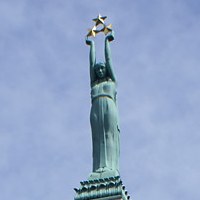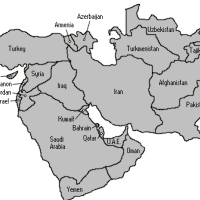![]()
Tue, Oct 18, 2011 | Asia Times Online | By Spengler
Economy: Are the Generals stealing Egypt?
After public warnings that it faces bankruptcy within a few months, Egypt’s central bank has taken firm and decisive action: it has fired all of its outside directors. Al-Ahram reported on October 16 that the Supreme Command of the Armed Forces has cut the number of board members to nine from 15, all appointed by Egypt’s president. Six outside directors, five from major banks and one from the accounting firm KPMG, have been dismissed.
It is hard to get reliable data on the state of Egypt’s economy, in part because so many things have gone wrong in such a short period of time, and in part because the military government fires officials who report bad news. Egypt’s economic route calls to mind the country’s military disaster during the 1967 war, when — according to the Egyptian government’s later evaluation — the military collapsed in part because of “the army’s fear of telling [president Gamal Abdul] Nasser the truth”.
It appears at first glance that the army does not want to tell itself the truth about Egypt’s economy. The truth probably is simpler, and more sinister. The simplest interpretation is that limiting membership on the central bank’s board to flunkeys of the Supreme Command clears the way for corruption on a grand scale. When the civil societies of developing countries disintegrate, the authorities often appear to be paralyzed. In most cases, the anonymous little men in charge of big functions are hard at work, making down payments on Paris apartments and private jets.
Egypt’s trade deficit last year rose to US$26 billion, with exports at $23 billion and imports at $49 billion, according to Mahmoud Abdul Hai, a consultant to Egypt’s National Planning Institute, the news site Youm7 reported on September 26. That would put Egypt’s trade deficit at a stunning 15% of gross domestic product (GDP). The central bank’s website, by contrast, reports that the deficit during the six months through July ran at an annual rate of 9% of GDP.
The central government probably has lost the capacity to count foreign trade flows accurately. A great deal of capital flight occurs through fraudulent invoices for imports as well as black-market exports of tradable commodities. The Egyptian press from time to time runs exposes of smugglers stealing rice, or fertilizer, or diesel fuel for sale to foreign buyers, although aggregates are hard to trace.
Read full article in the Asia Times Online.



 RSS
RSS











Economy: Are the Generals stealing Egypt? | Middle East, Israel, Arab World, Southwest Asia, Maghreb http://t.co/khKRkURo
Economy: Are the Generals stealing Egypt? | Middle East, Israel, Arab World, Southwest Asia, Maghreb http://t.co/khKRkURo